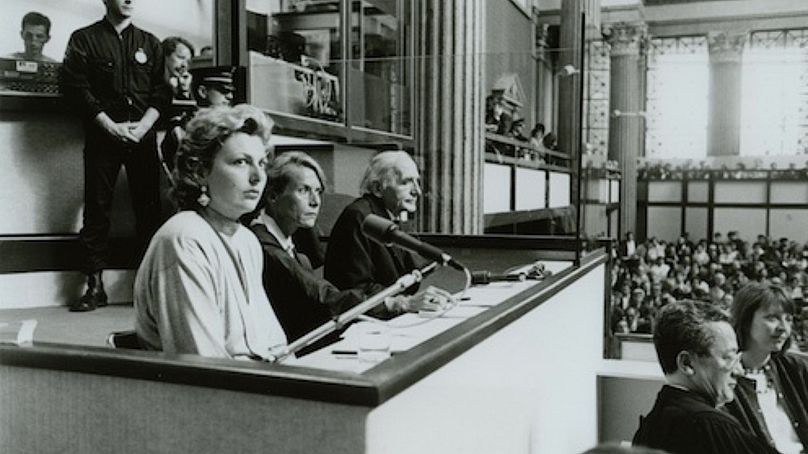Marcel Ophuls, the acclaimed French-German documentary filmmaker whose probing explorations of history and memory helped shaped the genre for decades, has died at the age of 97.
His grandson, Andreas-Benjamin Seyfert, confirmed that he “died peacefully” on Saturday.
Ophuls’ life and career focus was shaped enormously by his own experience of war and exile. Born in Frankfurt in 1927 to German-Jewish parents – actor Hilde Wall and celebrated director Max Ophuls – he was just six years old when the family were forced to flee due to the rise of the Nazi regime in 1933.
They found temporary refuge in France, only to be forced away again in 1940 as German forces advanced across Europe. They escaped across the Pyrenees into Spain, and eventually reached the United States in December 1941.
After finishing college in Los Angeles, Ophuls served in a U.S. Army theatrical unit in occupied Japan in 1946. In 1950, he returned to France and began his film career as an assistant to renowned directors Julien Duvivier and Anatole Litvak. After early forays into fiction, including the 1964 comedy-thriller hit Banana Peel starring Jeanne Moreau and Jean-Paul Belmondo, Ophuls turned to documentaries.
The documentary banned in France for more than a decade
Ophuls’ most renowned work, The Sorrow and the Pity (1969), was a groundbreaking documentary that questioned France’s postwar narrative of noble resistance. Across four hours, the film focuses on the town of Clermont-Ferrand and pulls together a collection of interviews with Resistance fighters, collaborators, Nazi officers, and seemingly ordinary citizens to expose an uneasy truth: that complicity with the occupiers had permeated every level of French society, from local hairdressers to aristocrats.
The blow to national self-image was so profound that French television banned the documentary for more than a decade, refusing to air it until 1981.
While making pioneering waves in historical documentary circles, the film also left its mark on pop culture. In Annie Hall, Woody Allen famously uses the film as an unlikely first-date movie.
Ophuls continued to tackle the shadows of the 20th century. In 1988, he won the Academy Award for Best Documentary Feature for Hotel Terminus: The Life and Times of Klaus Barbie, a chilling investigation into the Nazi war criminal known as the “Butcher of Lyon.”
In later years, he remained outspoken on political issues, turning his attention to the Israeli-Palestinian conflict. In 2014, he began crowdfunding Unpleasant Truths, a documentary co-directed with Israeli filmmaker Eyal Sivan that sought to explore the Israeli occupation of Palestinian territories and the rise of antisemitism and Islamophobia in Europe.
Initially conceived as a collaboration with French New Wave pioneer Jean-Luc Godard – who later withdrew but appears briefly in the film – the project was ultimately stalled by financial and legal complications and remains unfinished.






